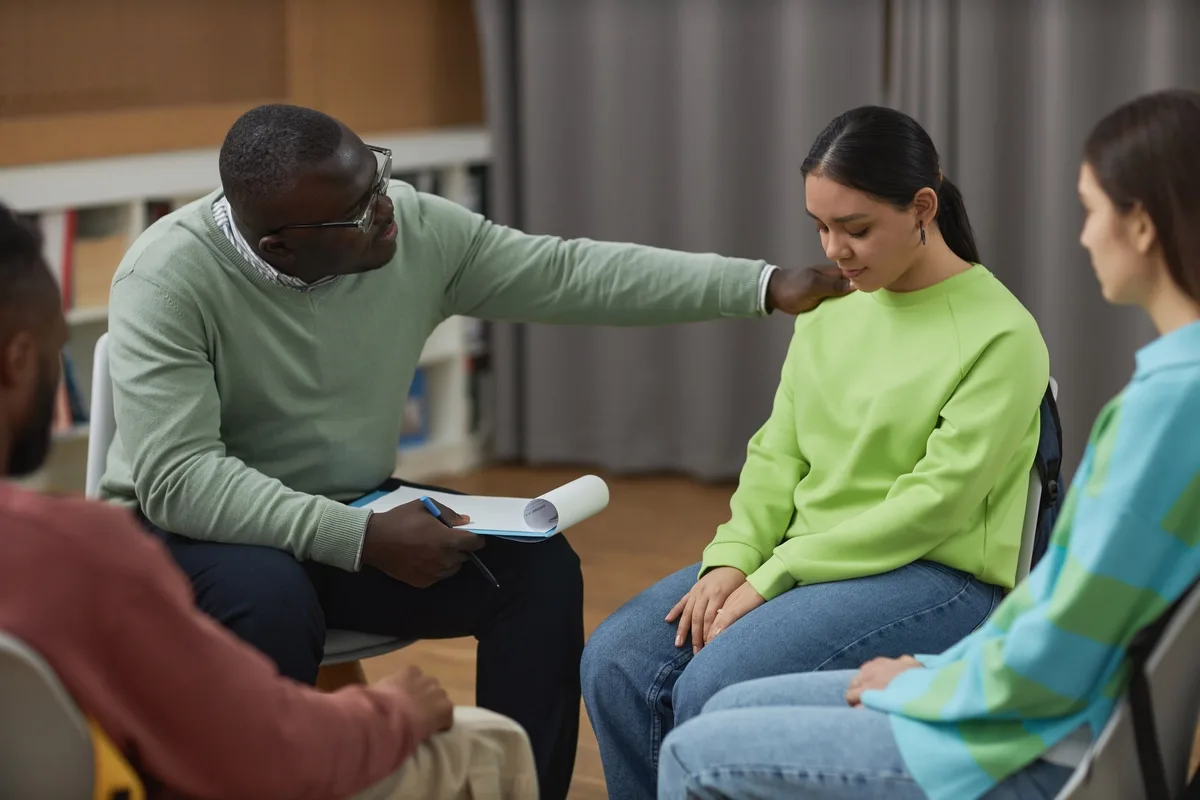24/7 Helpline:
(866) 899-221924/7 Helpline:
(866) 899-2219
Learn more about PTSD Treatment centers in Vanduser
PTSD Treatment in Other Cities

Other Insurance Options

WellPoint

Cigna

Providence

American Behavioral

Excellus

Covered California

Multiplan

Choice Care Network

Magellan

BlueShield

CareSource

Self-pay options

United Health Care

Humana

Premera

Health Choice

ComPsych

Absolute Total Care

Molina Healthcare

Ceridian










